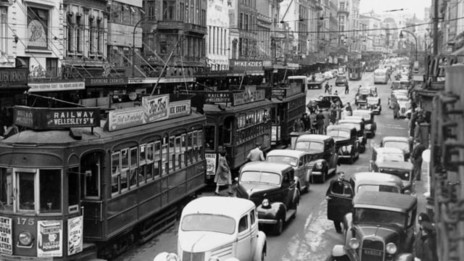Tuhi Timoti
If you scour the library of recorded New Zealand music you’ll find little mention of Tuhi Timoti but, no stranger to the recording studio, he has countless credits for television and film soundtracks, and for over 20 years he was the go-to guitarist to accompany major performers on stage, both local and international. Few musicians can claim a professional association with acts as diverse as Kiri Te Kanawa, Ricky May and Ray Charles.
Tuhirangi Louis Timoti (Ngāti Whātua/Ngāpuhi) was born on 9 January 1947 and raised at Kakanui, near Helensville. The family shifted to Manurewa in 1962 and, shortly after, Timoti began receiving guitar lessons twice a week from Johnny Bradfield in Blockhouse Bay. “Johnny was a lovely man with a lovely whānau,” he remembers. “I’d spend all day there, getting fed and everything.”
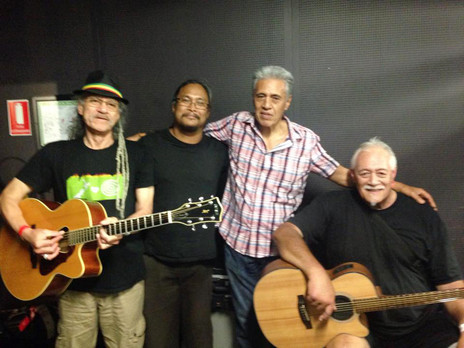
From left: Tama Lundon, unidentified friend, Tuhi Timoti, Dilworth Karaka, backstage at Coolangatta, Australia.
Photo credit:
Sarah Richards/Tuhi Timoti collection
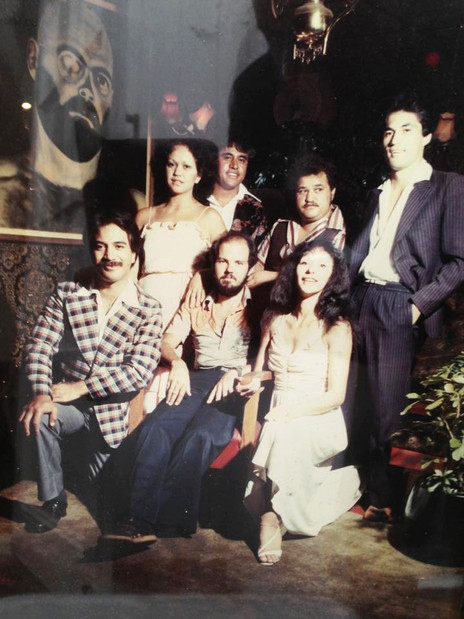
The Tuhi Tama Band, which played at Aladdin's nightclub under Auckland's Civic Theatre, 1979. From left: Armand Crown, Erana Clark, Tuhi Timoti, Chris Fox, Tama Renata, Josie Rika, Dave Noda.
Photo credit:
Sarah Richards/Tuhi Timoti collection
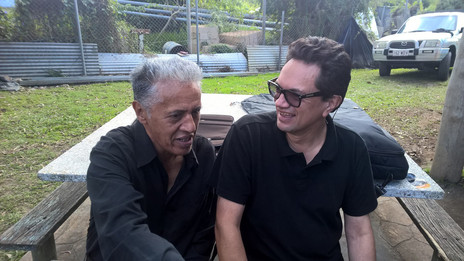
Tuhi Timoti and David Gilgen.
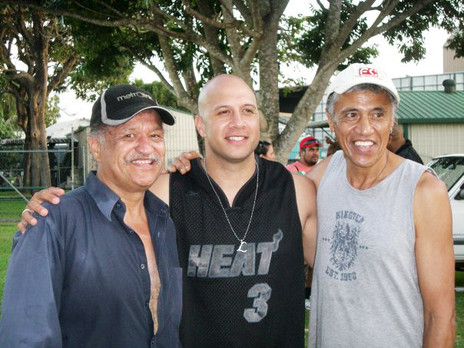
Tama Renata, Phil Crown and Tuhi Timoti, Waitangi Day 2008 on Queensland's Gold Coast, Australia.
Photo credit:
Sarah Richards / Tuhi Timoti collection
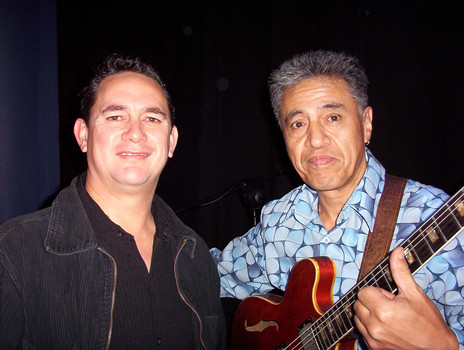
Tuhi Timoti and Ben Gilgen.
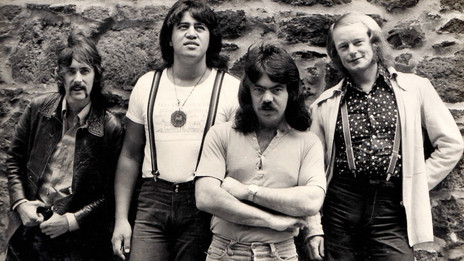
Cricklewood, mark two, 1970s. From left: Bas Peterken, Tuhi Timoti, Dean Ruscoe, and Peter Wood.
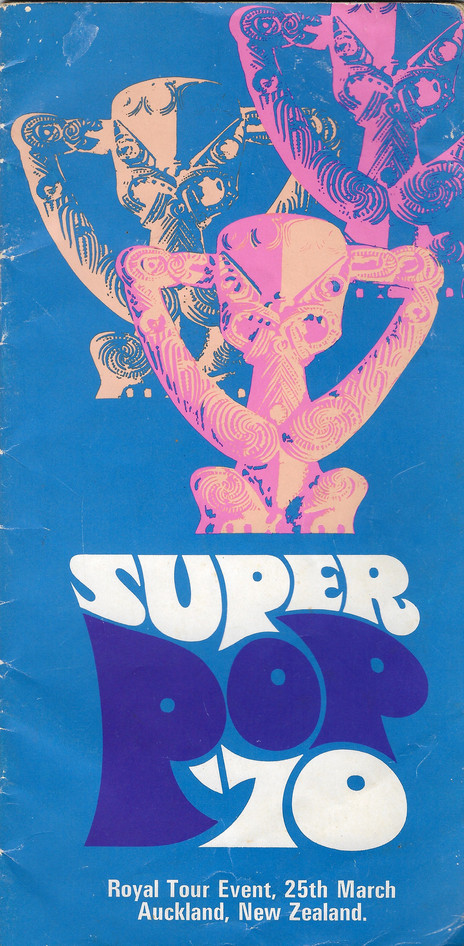
Super Pop '70 was a showcase of local performers including The Chicks, Bunny Walters, Corben Simpson, Classic Affair (with Reg Ruka), The Chapta and Larry Morris, held at Western Springs, Auckland during a visit from the royal family. Prince Charles and Princess Anne attended and met the performers. The band leader was Tuhi Timoti.
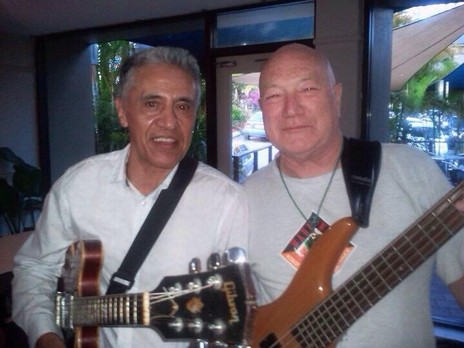
Tuhi Timoti (left) and Billy Kristian.
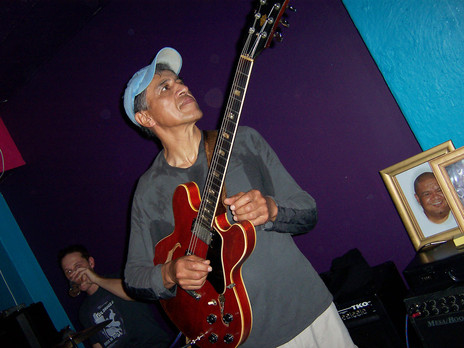
Tuhi Timoti.
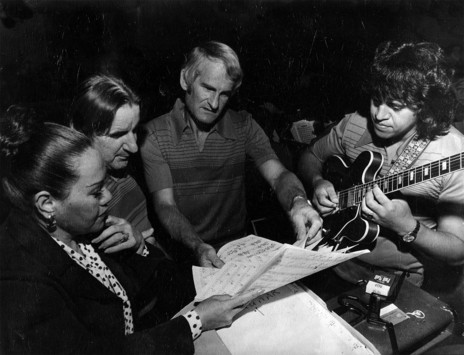
Mavis Rivers, Julian Lee, Murray Tanner, and Tuhi Timoti rehearse for a jazz gig at Trillo's, Auckland, 1970s.
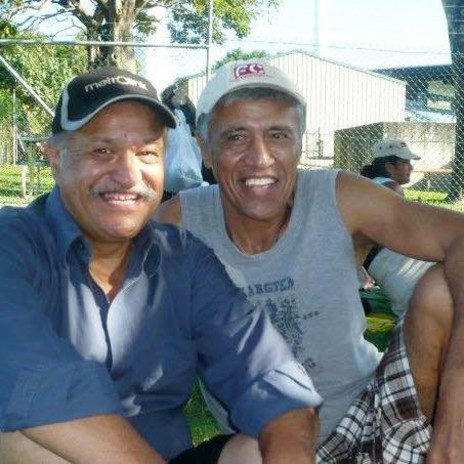
Tama Renata and Tuhi Timoti
Photo credit:
Sarah Richards/Tuhi Timoti collection
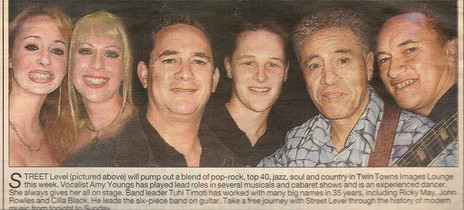
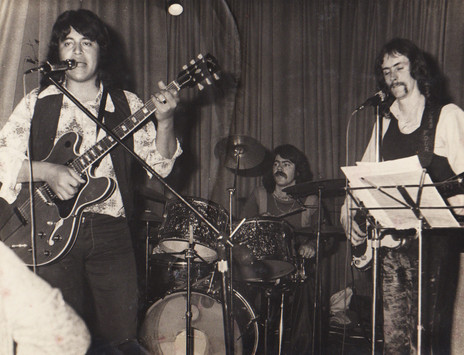
Cricklewood, taken at Carnaby's nightclub, Auckland, early 1970s. From left: Tuhi Timoti, Dean Ruscoe, and Bas Peterken.
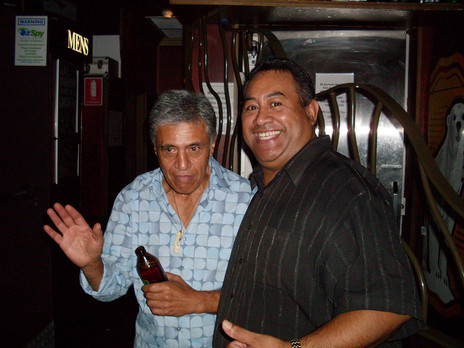
Tuhi Timoti and Peter Tuitama.
Tuhi - Tama Band playing live at The Southern Comfort Jazz Blues Celebration at Mon Desir Hotel in 1985. Tuhi Timoti on guitar, Tama Renata on guitar and vocals, Nathan Haines (14 y/o) on flute, Hal Tupaea on Bass, Lance Bentley on drums, Chris Neilson on keyboards and trumpet, and Mike Walker on keyboard.
Watch: Unsung Heroes of Maori Music - EP6 Tuhi Timoti and Tama Renata
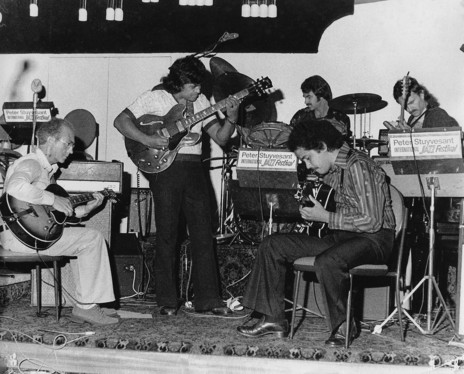
A rehearsal for guitar club, at the Auckland Musicians Club. From left: Johnny Bradfield, Tuhi Timoti, Bruce King drums, Chuck Morgan guitar, and Bob Jackson bass.
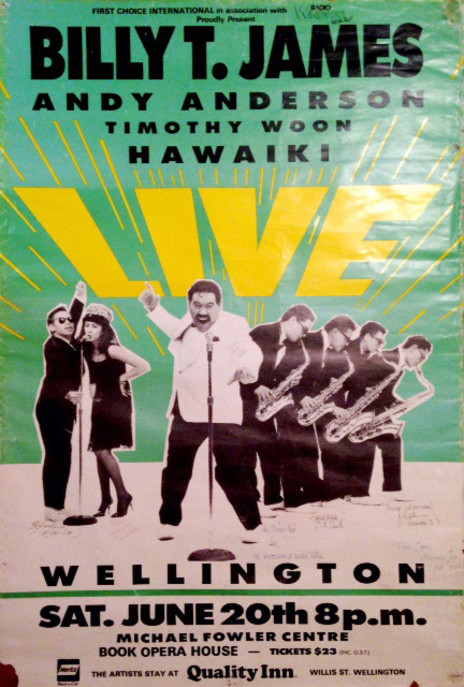
Billy T. James' touring band featured Tuhi Timoti on guitar.
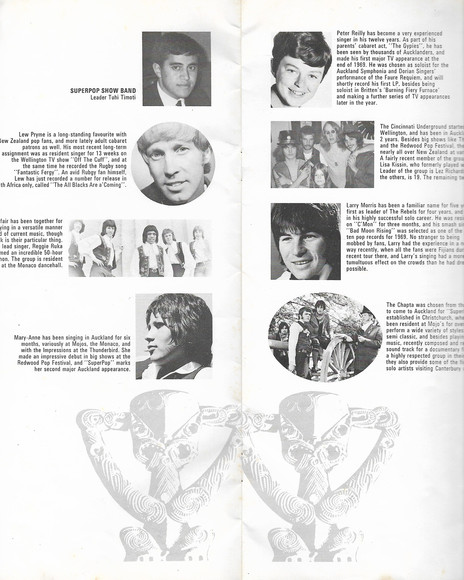
Artists' bios in the Super Pop '70 programme. The musical director was Tuhi TImoti.
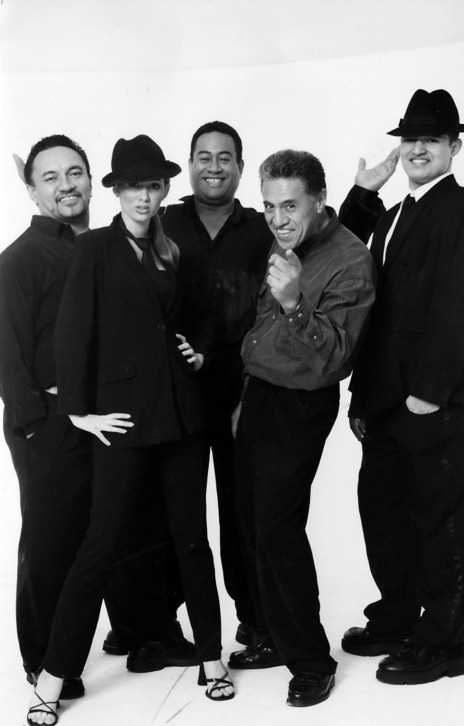
Street Level showband. From left: Dean Harawira bass, Amy Young vocals, Peter Tuitama guitar, Tuhi Timoti guitar, Khan Ropati vocals.
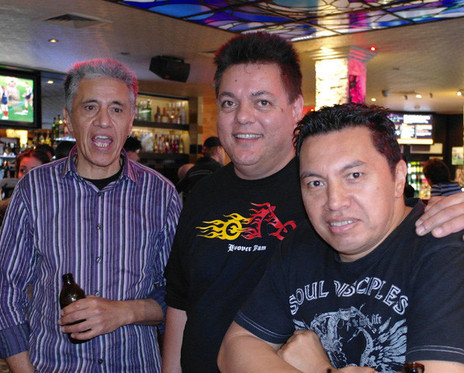
Tuhi Timoti with Grant Pukeroa and Max Stowers.
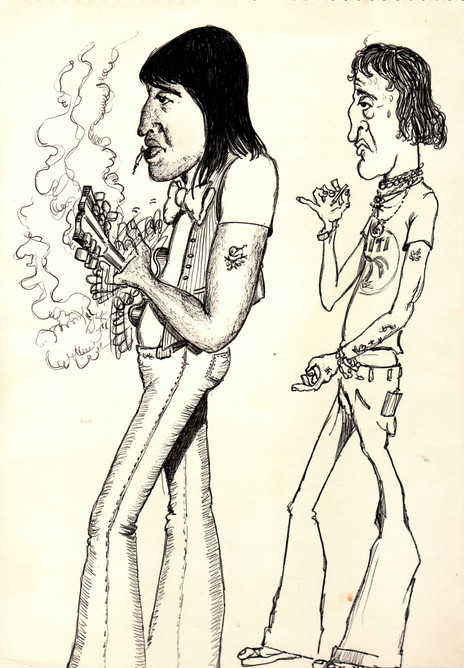
This caricature of Tuhi Timoti (left) with John "The General" Rangi was drawn by Billy T James.
Photo credit:
Dean Ruscoe collection
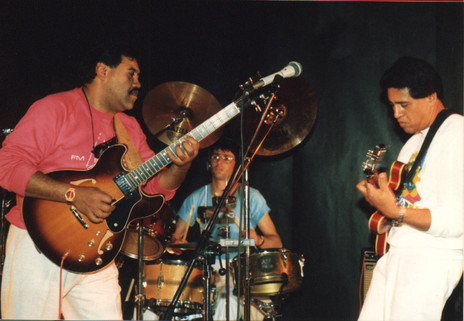
Tuhi Timoti (right) with Billy T James and drummer Lyn Buchanan, late 1980s.
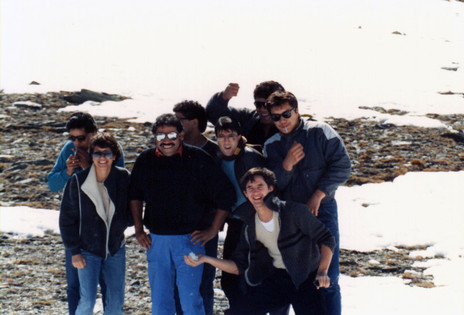
Tuhi Timoti on tour with Billy T James in Queenstown.
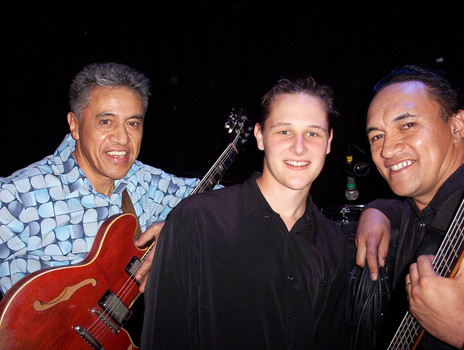
Tuhi Timoti, Nick Hatch, Dean Harawira.
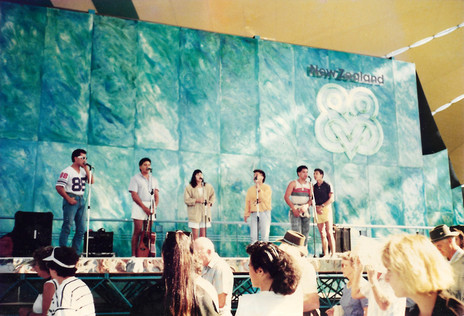
On the New Zealand stage at the Brisbane Expo, 1988. From left: Jay Collins drums, Tuhi Timoti guitar, Taisha vocals, Leon Wharekura vocals, Hal Tupaea bass, David Pritchard-Blunt keyboards.
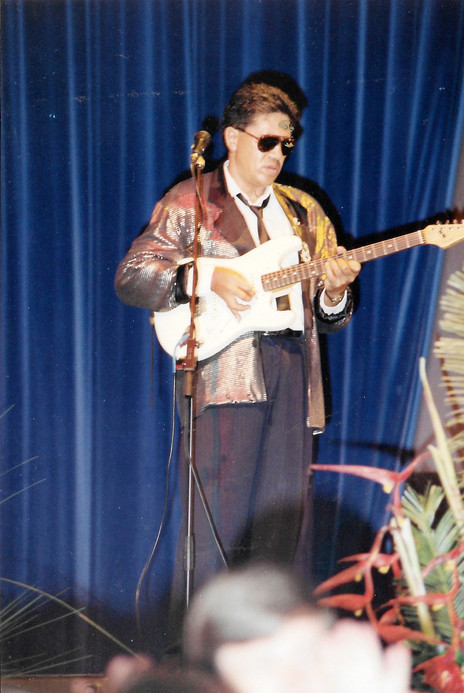
Tuhi Timoti playing with his showband at the International Resort, Hamilton Island, Queensland, 1991.
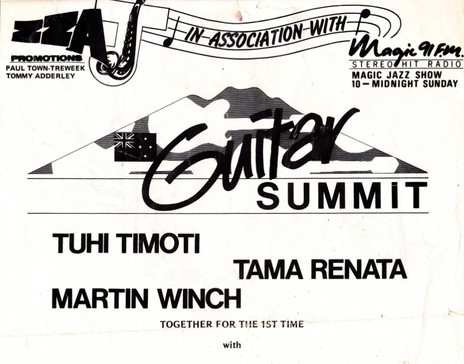
Tama Renata, Tuhi Timoti, Martin Winch together with Murray McNabb and Frank Gibson Jr.
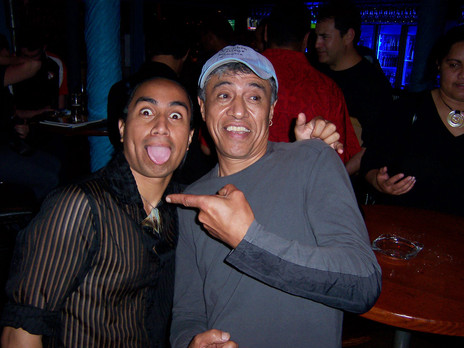
Heimana Tahiata and Tuhi Timoti.
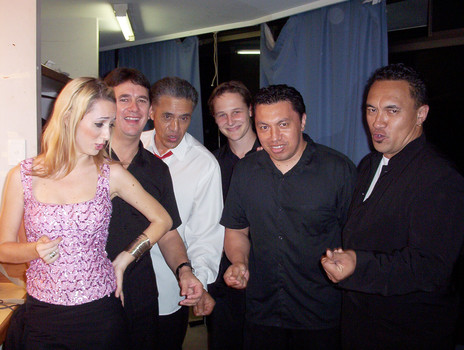
Street Level, December 2003 - Tuhi Timoti is third from left.
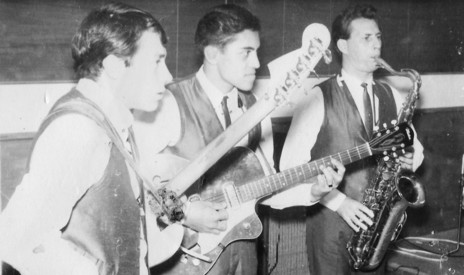
John Bartley, Tuhi Timoti, and Dave Adams (Tuhi's first music teacher).
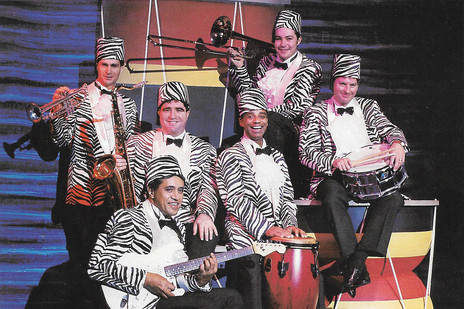
The resident International Showband, dressed for "tropical night", at Jupiter's Casino, Gold Coast, 1993-1994. Tuhi Timoti in front with guitar.
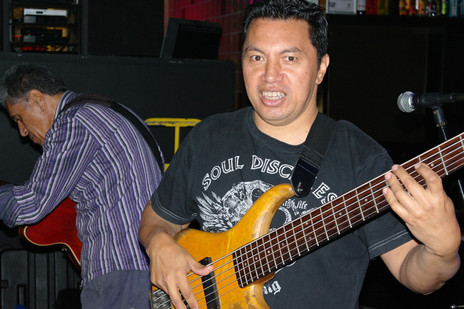
Tuhi Timoti (left) performing with Max Stowers on Chevron Island, early 2000s.
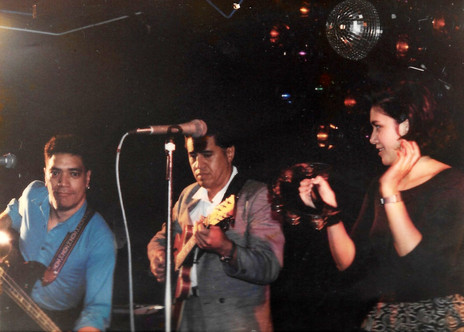
Hawaiki, Club 21, 1985. From left: Hal Tupaea, Taisha, Tuhi Timoti.
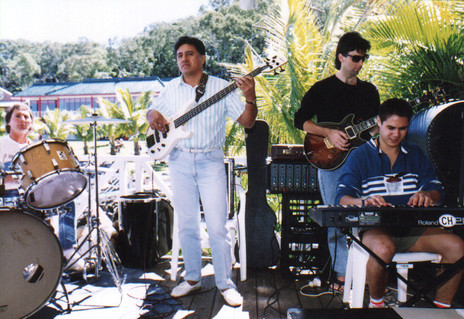
Tuhi Timoti, Hamilton Island 1990.
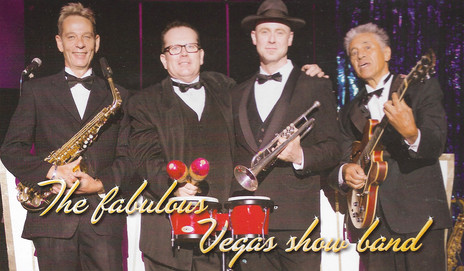
Tuhi Timoti (far right) with the Vegas showband, Star Casino, Gold Coast, 2015.
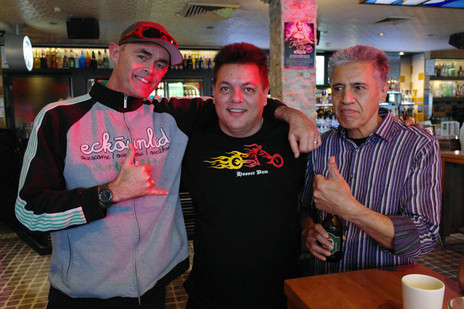
Grant Pukeroa (centre) with Tuhi Timoti (right) and friend.
Tuhi - Tama Band performing Charlie Parker's Scrapple live at The Southern Comfort Jazz Blues Celebration at Mon Desir Hotel in 1985. Tuhi Timoti on guitar, Tama Renata on guitar and vocals, Nathan Haines (14 y/o) on flute, Hal Tupaea on Bass, Lance Bentley on drums, Chris Neilson on keyboards and trumpet, and Mike Walker on keyboard.
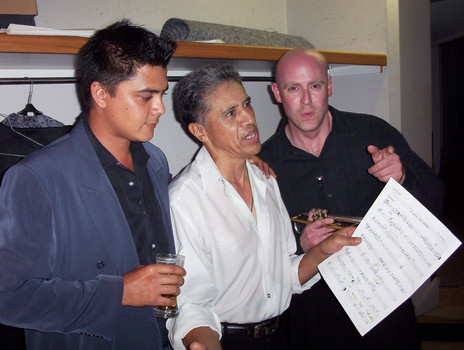
The Louis Bull floor show band at the Twin Towns Services Club, 2007. From left: Louis Bull, Tuhi Timoti and Mal Woods.
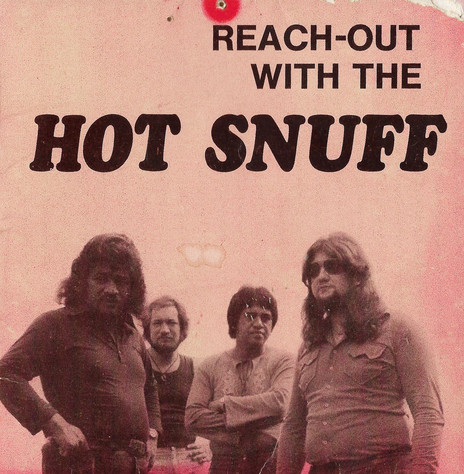
Hot Snuff, mid 1970s. From left: Harris Campbell, Billy Kristian, Tuhi Timoti and Dennis Ryan.
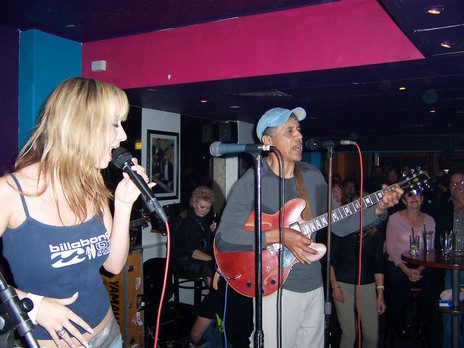
Amy Young and Tuhi Timoti.
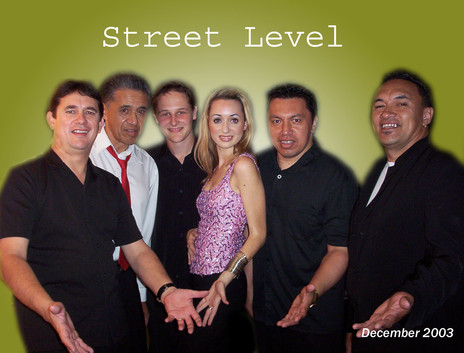
Tuhi Timoti (second from left) in Street Level.
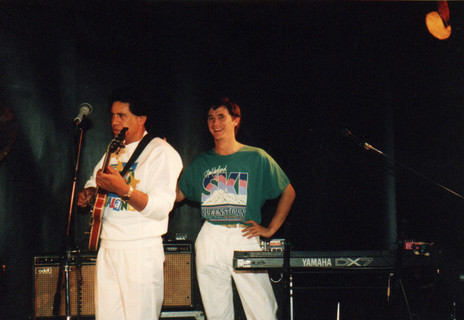
Tuhi Timoti and Ben Gilgen in Queenstown.
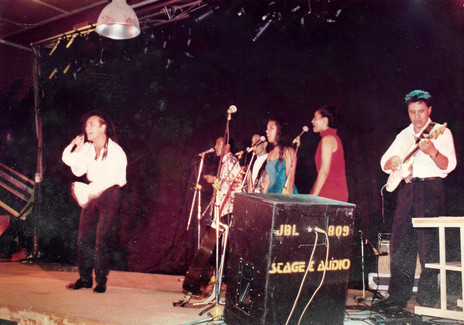
Mark Williams sings at the North Queensland 1991 gala night, with Tuhi Timoti on guitar, far right.
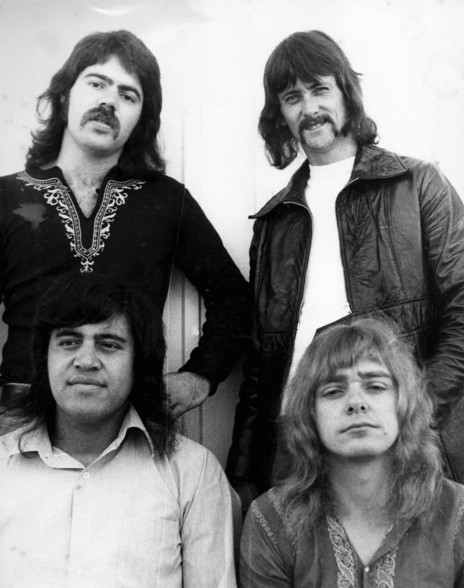
Cricklewood, c. 1972. Clockwise from top left: Dean Ruscoe, Bas Peterken, Jim Hall, Tuhi Timoti.
Photo credit:
Jim Hall Collection
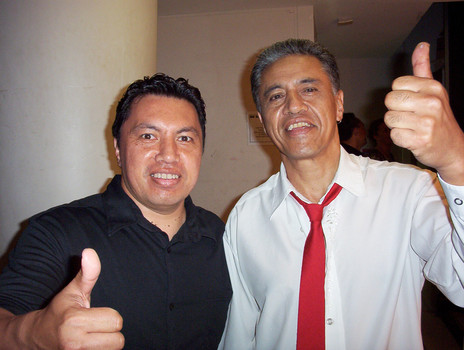
Max Stowers and Tuhi Timoti.
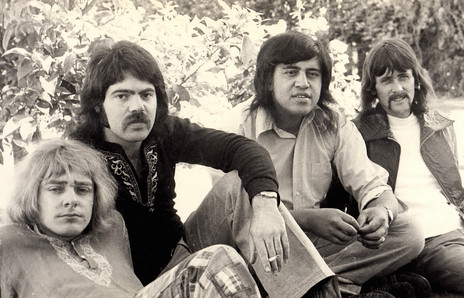
Cricklewood, c. 1972. From left: Jim Hall, Dean Ruscoe, Tuhi Timoti, Basil Peterkin.

